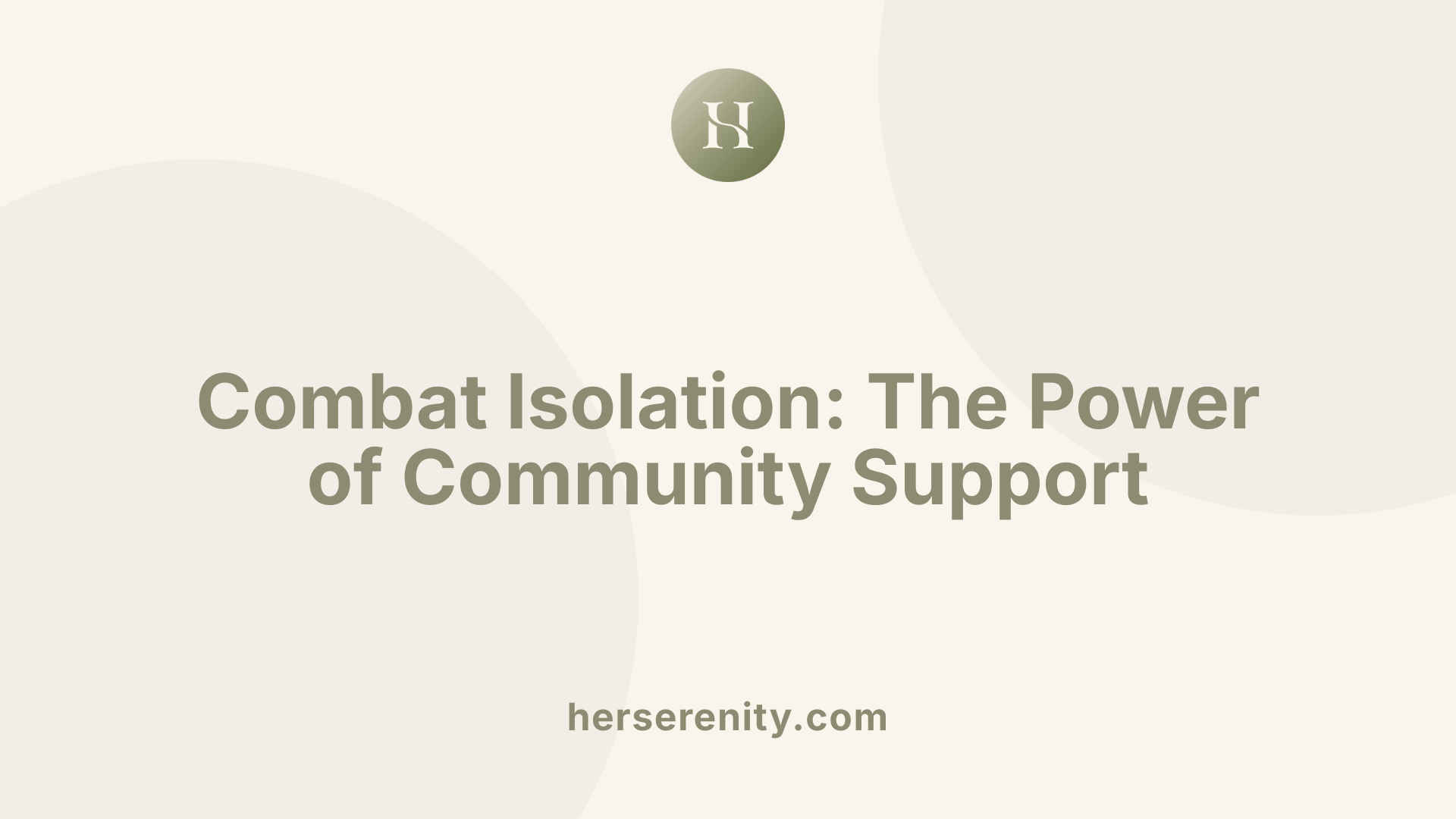The Benefits of Fertility Support Groups
Fertility Support Groups: A Lifeline for Emotional Connection and Empowerment

Discovering the Value of Fertility Support Groups
Infertility can be an isolating journey, fraught with emotional and psychological challenges. Fertility support groups have emerged as a vital resource for individuals navigating these rough waters, providing not only emotional support but also a sense of community and belonging. They offer a platform where shared experiences foster resilience and hope, empowering participants through knowledge and mutual understanding.
Understanding Fertility Support Groups

What is a fertility support group?
A fertility support group is a safe space where individuals facing infertility and related family-building challenges can connect and share their experiences. These groups can be peer-led or professionally-led by licensed mental health professionals, offering emotional and psychological support through shared journeys.
Participants are encouraged to engage with group leaders for information and community involvement, helping combat feelings of loneliness and isolation. Additionally, support groups may provide valuable resources, expert speakers, and discussions that enhance participants' understanding of infertility.
Overall, these groups foster inclusivity and can significantly improve emotional well-being during the infertility experience.
Types of support groups
Support groups can be categorized into two main types:
- Peer-led: Conducted by individuals who have experienced similar challenges.
- Professionally-led: Organized by licensed mental health professionals, providing structured and expert guidance among participants.
Both types offer emotional support, but they differ in the level of professional advice and structure.
Purpose and expectations
The main purpose of fertility support groups is to alleviate isolation, provide emotional support, and enhance knowledge regarding various infertility treatments. Members often share their experiences, thereby enriching the group with diverse perspectives and coping strategies. Participants can expect a compassionate environment that encourages discussion, learning, and empowerment in their fertility journeys.
Emotional and Psychological Benefits of Joining

What are the benefits of joining fertility support groups?
Joining fertility support groups offers numerous benefits for individuals navigating infertility challenges. These groups provide essential emotional support, creating a comforting space where members can openly share their struggles and experiences. This connection helps alleviate feelings of loneliness and isolation that many feel when facing fertility issues. It’s not uncommon for participants to express that knowing others share similar challenges brings a sense of relief and validation.
The practical sharing in support groups can also be cathartic, allowing individuals to process their feelings more effectively and contributing to reduced anxiety and depression. Members learn coping strategies from each other, imparting tools to navigate the emotional rollercoaster often associated with infertility treatments.
Reduction in isolation
Support groups actively combat the feelings of isolation that can permeate the infertility journey. By engaging with others, members can build a robust network that fosters friendships and camaraderie. This community spirit is especially vital for those who may feel further marginalized, such as LGBTQ individuals or single parents trying to conceive. Each shared story and experience turns the focus from solitude to support, helping create a collective sense of understanding.
Mental health improvements
Improving mental health is another significant advantage of joining a fertility support group. Participants often report a decrease in stress levels, as the safe space allows for expressing frustrations and emotions without judgment. The collective sharing of knowledge regarding medical treatments and personal stories not only reinforces feelings of empowerment but also encourages members to advocate for themselves within healthcare contexts. Ultimately, the combination of emotional support, shared wisdom, and the formation of lasting relationships equips members to approach their fertility journey with renewed hope and resilience.
Support groups exemplify the power of community support in enhancing mental well-being and instilling empowerment, thereby increasing the chances of experiencing joy and success in the journey to parenthood.
The Role of Support Groups in Alleviating Isolation

How do fertility support groups offer emotional support and alleviate isolation?
Fertility support groups play a vital role in providing emotional backing to those experiencing infertility. They create safe spaces for sharing personal stories and feelings, which can significantly reduce feelings of isolation common in these situations. Members often discover that they are not alone in their struggles, fostering a sense of community among those facing similar challenges.
These groups are designed to cater to diverse populations, whether it’s women, men, LGBTQIA+ individuals, or those dealing with secondary infertility. This inclusivity allows for tailored support, addressing the specific emotional and coping needs of various participants.
Both virtual and in-person options are available, enabling accessibility for individuals regardless of geographical constraints. This flexibility encourages participation, which can lead to improved mental health outcomes, including reduced feelings of depression and anxiety.
Furthermore, shared experiences within these groups not only offer insights into coping strategies and informational resources but also provide hope and motivation through success stories. Ultimately, joining a fertility support group significantly helps alleviate isolation by fostering a sense of belonging and understanding during challenging times.
Dissecting Myths and Facts about Support Groups

What myths and facts exist about fertility support groups?
Fertility support groups are often surrounded by misconceptions. One common myth is that these groups cater only to women. In truth, infertility affects both genders equally, and support groups are inclusive, welcoming men, women, and diverse communities. Another misconception is that participation in these groups is futile. Research shows that individuals engaged in support networks report reduced feelings of anxiety and depression, demonstrating their value.
Truths about support groups
A prevalent myth suggests that stress alone causes infertility. While stress can impact conception, it is not a direct cause. Many also do not realize that a healthy couple under 35 has approximately a 20% chance of conceiving each month. This reality underscores the importance of emotional and community support during the fertility journey.
Impact on infertility
Support groups like those offered by RESOLVE enable individuals to confide in others who understand their struggles. This connection can significantly alleviate feelings of isolation and provide hope, reinforcing that they are not alone in their journey.
Navigating the World of Fertility Support Groups

How can someone find and choose the right fertility support group for their needs?
To find a suitable fertility support group, it’s essential to start with thorough research. Look for organizations that offer peer-led support groups, like RESOLVE, and consider the dynamic of online communities such as FertileThoughts. These resources can facilitate valuable connections and provide the emotional support vital during this challenging journey.
When selecting a group, consider its structure, leadership, and focus areas. Some groups offer specialized support tailored for demographics like LGBTQIA+ individuals, men, or single parents. Resources from the American Society for Reproductive Medicine and SART can also be beneficial, providing credible information alongside emotional support.
It’s crucial to assess your preferences regarding group size and meeting formats. Whether you prefer engaging in-person or virtual interactions can significantly impact your experience. Engaging in a supportive environment that resonates with your needs can alleviate feelings of isolation and enhance mental health, making it an essential aspect of your fertility journey.
Rising Popularity of Online Support Networks
What is the impact of online peer support networks for individuals dealing with infertility?
Online peer support networks for individuals dealing with infertility have a profound impact by providing accessible and flexible emotional and informational support. Many individuals seeking fertility treatment express a strong interest in these online resources, particularly those experiencing high levels of stress. Such communities fulfill a crucial need for understanding and shared experiences that may be lacking from family and friends.
The benefits of online support can be substantial. They offer a platform for sharing stories of resilience, providing hope and camaraderie among members. Furthermore, participants often report lower levels of stress and improved mental health due to the empathetic community engagement available within these groups. Information shared can enhance understanding of various treatment options and help individuals navigate their fertility journey with more confidence.
However, the effectiveness of such networks depends on careful management. Potential challenges include misinformation and negative dynamics that can arise if these communities are not properly monitored. To ensure the best outcomes, it's important for moderators to facilitate constructive dialogue and provide educational resources. With the right structure, these online communities can substantially enhance the coping strategies and overall well-being of individuals facing infertility challenges.
Online vs. in-person groups
| Feature | Online Support Groups | In-Person Support Groups |
|---|---|---|
| Accessibility | Available anywhere with internet | Limited to local participants |
| Emotional Engagement | Flexible, can be accessed anytime | Face-to-face connection |
| Information Sharing | Can include diverse insights from various regions | Group experiences may be localized |
Potential Challenges
- Misinformation: Risk of sharing inaccurate advice
- Negative Dynamics: Herd mentality leading to collective negativity
- Isolation: Some users may still feel unconnected despite online interactions
In summary, the rise of online support networks represents an evolving landscape in the treatment of infertility, offering unique advantages that cater to a diverse group of individuals seeking connection and understanding.
The Essential Role of Support Groups in Fertility Journeys
Fertility support groups serve as an indispensable pillar for those facing the daunting journey of infertility. By offering emotional solace, practical knowledge, and a community of shared experiences, these groups uplift individuals, helping to ease the burden of infertility. Whether through in-person meetings or online communities, engaging with a support group can transform the fertility journey by alleviating isolation, fostering resilience, and imparting hope for the future.
References
- Is a Support Group Right for Me? | RESOLVE
- 4 Reasons Why You Should Join a Support Group
- Healing and Hope: The Positive Impact of Fertility Support Networks
- Why You Should Consider Joining a Fertility Support Group This Year
- Why Join an Infertility Support Group - The Oldershaw Clinic
- You're Not Alone: Infertility Support Groups Ease the Pain
- Four Reasons to Join An (In)fertility Group - Rachel Rabinor































































































